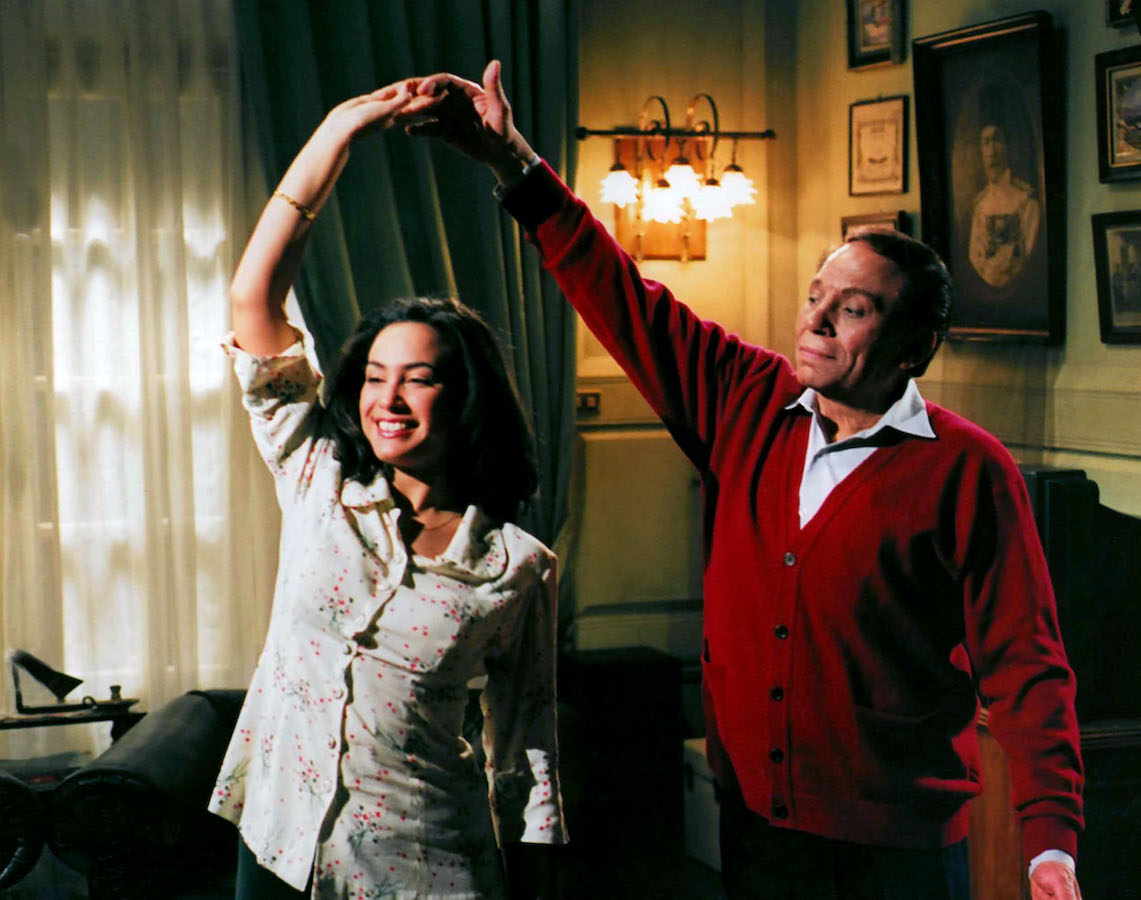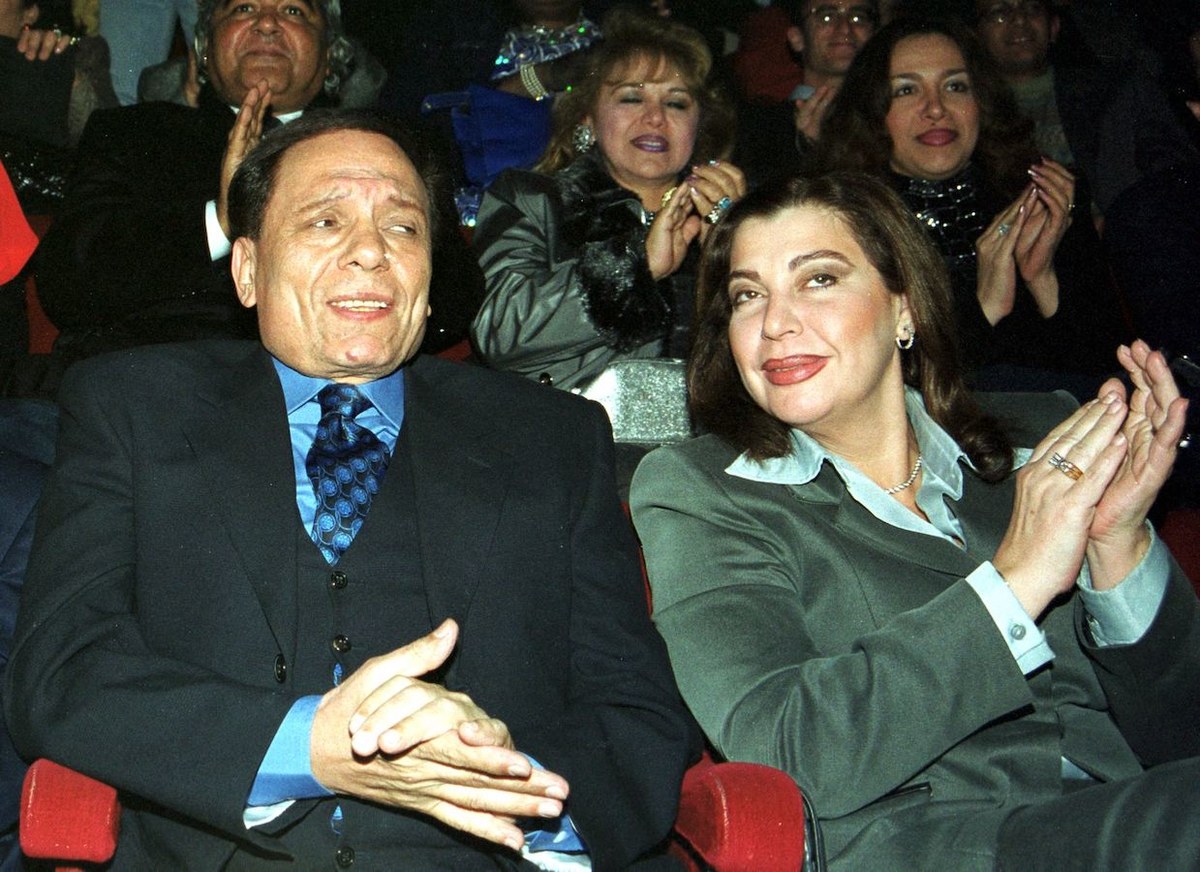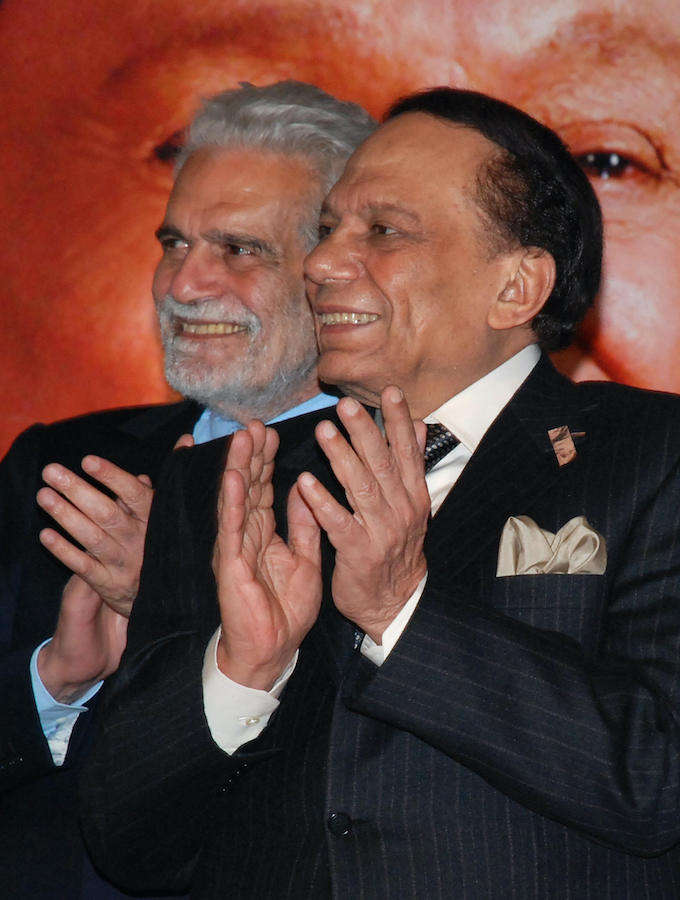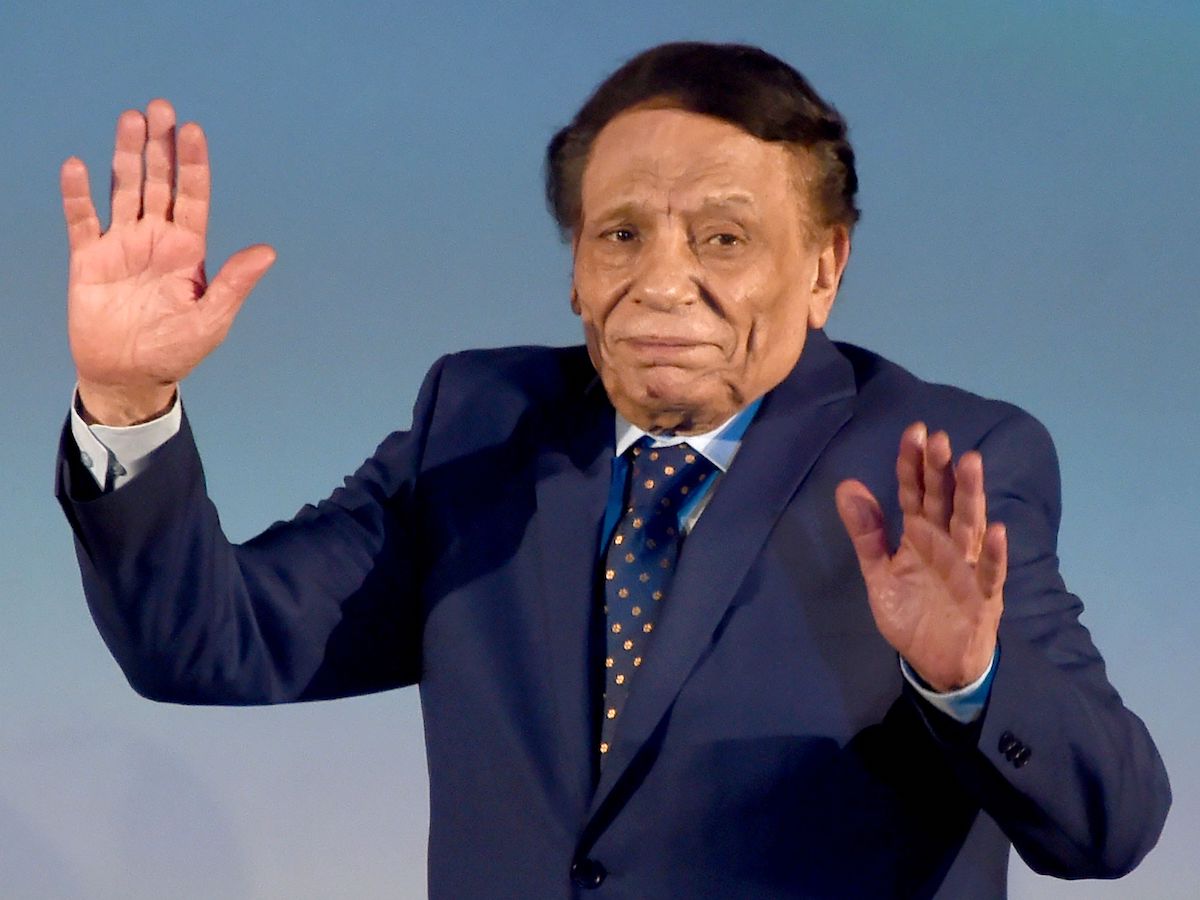DUBAI: There are not many lives as full as Adel Emam’s. Put it this way: The Dubai International Film Festival has given him a Lifetime Achievement Award twice. A legend of stage and screen — both big and small — Emam is the crown prince of Egyptian pop-culture, a comic and dramatic actor who has appeared in 103 movies and more than a dozen TV series over an astounding career that has lasted more than 60 years.
At 82, Emam may have taken a slight step back from the public eye, but the love the Arab world continues to show for him, and his influence on the generations of talent who grew up idolizing him, is as immense as it has ever been.

Adel Emam with Hend Sabry in Marwan Hamed's 'The Yacoubian Building'. (Supplied)
“Everything in the world changes. The rhythm of speech changes. Life becomes fast too. And believe me, you can fool some people all the time, and you can fool all the people some of the time, but you cannot fool all the people all the time,” Emam told Kuwait’s Zaman TV in the 1970s. “It is honesty that determines career longevity, and an actor’s esteem from his fans determines his continuation or his end.”
While Emam was waxing philosophical about another actor at the time, by his own metric it is his sincerity that has helped earn his following — both from those that watch his work, and those that have worked with him directly.
His straightforward nature and honesty have long been the key to his comedic voice, too, allowing him to tackle hot-button issues such as gender roles in society (1966’s “My Wife, The Director General”); terrorism and religious extremism (1979’s “We are the Bus People,” 1992’s “Terrorism and Kebab,” 2006’s “Hassan and Marcus”); political corruption (2006’s “The Yacoubian Building”) and more, only come out the other side (mostly) unscathed. (Like many Egyptian celebrities, he has stirred controversy with his indelible satire, but no charges against him have ever stuck.)
For Marwan Hamed, Egypt’s top modern director and the man behind Egypt’s current all-time box-office champion “Kira & El Gin,” there’s simply no competition — there has been no bigger moment for him than collaborating on “The Yacoubian Building” with the man known as “Al Zaeem” (The Big Boss).
“Working with the Egyptian legend Adel Emam has been the greatest privilege I’ve had in my career,” Hamed tells Arab News. “Adel Emam is my childhood, teenage, and all-time, hero. Working with him was a great moment, and to work with such a great man and artist in my first film was an exceptional honor for me.
“His humanity, generosity and love were the highlight of this experience, and personally I learned a lot from him, whether from observing him or from the words of advice that he gave me,” he continues. “I’m not exaggerating when I say that the whole experience is the most memorable I’ve had, and every shooting day was full of value and true art.

Egyptian film star and comedian Adel Imam (L) applauds with his wife Hala al-Sharakani (R) the beginning of the first screening of his new film "Hello America" at the opening night 04 January 2000 in Cairo. (AFP)
In “The Yacoubian Building,” which became the most popular film in Egyptian history up to that point (a theme throughout Hamed’s career) and the best-received performance of Emam’s dramatic career, Emam cemented himself as Egypt’s biggest star, regardless of genre. He also helped launch the career of his own son, Mohamed Emam, his co-star in the film and now one of the biggest stars in Egypt in his own right.
“I love him so much. I admire him so much. He's my idol,” Mohamed told Arab News earlier this year, while admitting that it hadn’t always been easy trying to build his own career. “It’s very difficult to become an actor when your father is the biggest actor in the world,” he said. “It was a big, big struggle at first. Slowly people grew to understand that I love cinema, that I don’t do this just because my father is a big actor.”
As a public figure, Emam has long been humble in nature, rarely pointing to himself as a leader.
“I am not a superstar, or a leader of any kind. There are no leaders in art. All I want is to use my talents to make people's lives better, if only in a small way,” he once said.

Adel Imam and Omar Sharif in 2008 at a press conference announcing their film 'Hassan and Marcus.' (Getty)
That, of course, is likely why people trust his opinions. Interviewers have often found themselves asking for his thoughts on political or social issues, looking to him for guidance in the debates of the day. And he invariably answers candidly — and often bravely.
In those conversations, however, he does not see himself as anything more than a voice in the crowd.
“The masses are the ones who move politics, and the problems of the masses are the things that move politics. It is not an individual who moves politics,” he told Zaman TV.
Born in 1940 in the city of Mansoura in Egypt, Emam studied agriculture at Cairo University, where he lost interest in his studies and became intrigued by the art, literature and theater that his friends were introducing him to.
“I feel (acting is) in my blood,” he said to Kuwait’s Zaman TV. “I love it, and my connection is always with people in the audience. In film, the camera enters the heart through the eyes. The more heart you see, the more honest the artist.”

Emam studied agriculture at Cairo University. (Getty)
As popular as Emam is, there are many sides to him that are not common public knowledge. Compared to his contemporaries and co-stars such as Omar Sharif and Soad Hosny, his private life has remained relatively private. But those are the sides that his own son hopes to portray on screen someday, Mohamed told Arab News.
“There’s another side to him that people don’t see: The father. The man that I know best,” he said. “I would love to be able to tell that story myself someday.”
While Emam may have slowed down, his career is still going strong. He last starred in the 2021 film “Bodyguard,” and is set to star once again with his son in “El Wad W Aboh” in the near future.
As for persistent rumors of his ill health or retirement, The Big Boss himself is here to put them to rest.
“Honestly, it’s a great feeling for a man to read his own obituary while he is well,” Eman joked to ET Bil Arabi last month.












